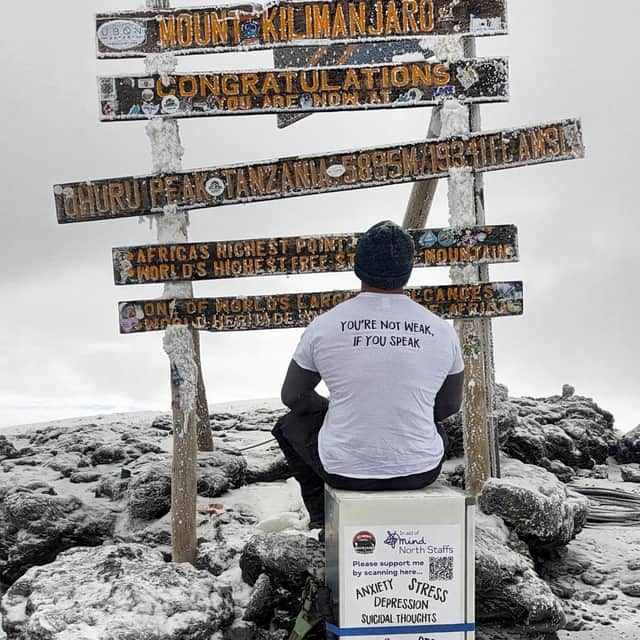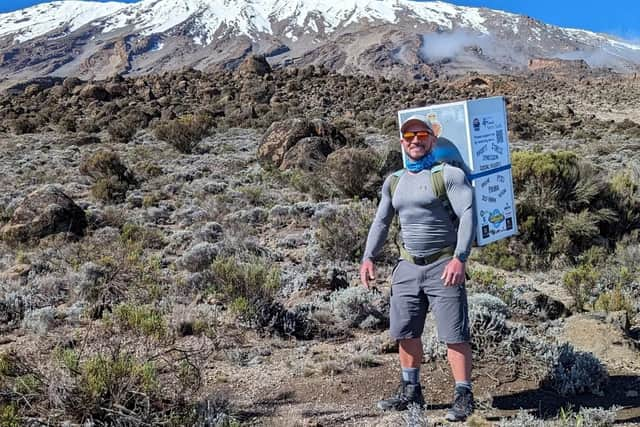Mount Kilimanjaro: Ex-soldier carries 30kg fridge up Africa's highest peak to highlight mental health
and live on Freeview channel 276
A former army fitness instructor has become the “first person in history” to climb Mount Kilimanjaro while carrying a FRIDGE.
Michael Copeland, from Stafford, has shared his epic adventures in a series of video diary clips on social media.


Fridge represents 'burden' of mental health
Advertisement
Hide AdAdvertisement
Hide AdImpressive footage shows how Michael scaled the 19,340ft (5,895m) dormant volcano with a 30kg (4.7st) kitchen appliance strapped to his back.
He reached the summit of Africa's tallest mountain on Monday (25/3) after an exhausting seven-day hike.
On reaching the iconic Uhuru Peak sign, Michael told his cheering supporters: “Day seven and I am the first man in history to climb Kilimanjaro whilst carrying a fridge to represent the burden of poor mental health.”
Men afraid to talk mental health
The former Grenadier Guard took on the unusual feat to raise money for Mind - but also to get men talking about their mental health.
Advertisement
Hide AdAdvertisement
Hide AdHe added that the fridge was a big 'talking point' that encouraged conversation.


'It's awkward and heavy on your shoulders'
He said: “Everyone always asks the same question: ‘Why a fridge?’
“But the answer is always the same. It’s not about the fridge, it could have been any very awkward object. It’s what it represents – mental health.
"It’s very awkward and very heavy on your shoulders, and it’s awkward to talk about.
Advertisement
Hide AdAdvertisement
Hide Ad“So the fridge is a way to get people talking and opening up about their mental health.”
Struggles with mental health after leaving army
The dad-of-two began his campaign to raise awareness about mental health two years ago after climbing Snowdon while carrying a fridge full of beer.
He said he felt “lost” after leaving the army in 2007 and struggled with obsessive-compulsive tendencies.
Michael added: “My message is you’re not weak if you speak up about mental health.
Advertisement
Hide AdAdvertisement
Hide Ad“I chose Kilimanjaro because it’s one of the highest mountains which can be climbed without ropes or other equipment.
“The competitive spirit I got from the Army has never left me.
“I’ve been the fridge man for two years, but I’ve always used physical challenges to overcome my own insecurities.
“When I get in nature and when I exercise it makes me feel good.”
Comment Guidelines
National World encourages reader discussion on our stories. User feedback, insights and back-and-forth exchanges add a rich layer of context to reporting. Please review our Community Guidelines before commenting.